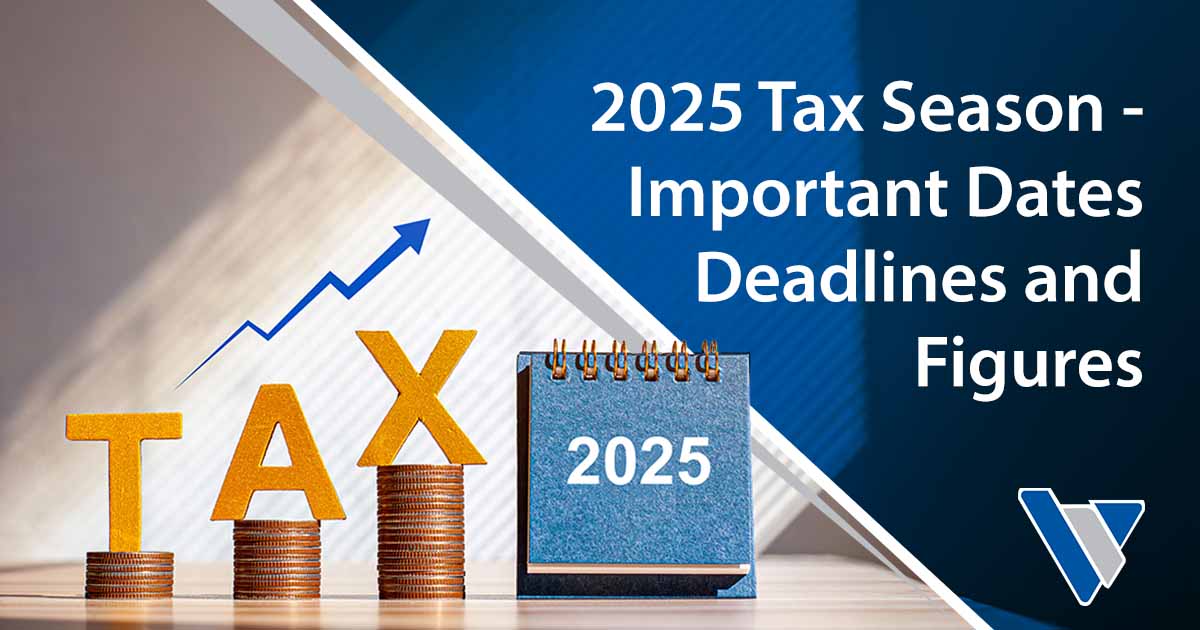It’s hard to believe that tax season is here already. In an effort to help our clients be...


It’s not uncommon to feel somewhat helpless in trying financial times such as these. Many people worry about how the current economic situation will affect their long-term goals and their financial future. Thankfully, there are actions you can take to start building wealth for the future.
Building wealth can seem daunting if you don’t have a high income. However, a large paycheck isn’t the only path to financial independence. One of the most important aspects of financial planning and wealth management is spending your money wisely. That’s not to say that creating a bright future for you and your family doesn’t take time and effort. It does. Here at Virtus Wealth Management we understand the complexities of money and investing. We’ve compiled these helpful tips to get you started on your path to pursuing your financial goals.
One of the best things you can do to set yourself up for success is to start as early as possible. It’s important to understand that the earlier you begin, the more time you have to pursue your goals. It’s equally important to realize that just because you haven’t started yet, doesn’t mean you’ve doomed your future. Starting today will always be better than starting tomorrow. It’s never too late to improve your financial situation. Here are a few things you can start working on right now.
Making a budget and sticking to it is one of the most important financial tips anyone can ever give you. A budget puts everything out in front of you in writing. It shows you what you earn and your expenses. If you ever find yourself wondering where your money went, then there’s a good chance you’re not using a budget.
Taking the time to sit down and make a list of all income streams and expenses helps acquaint you with your current financial situation. If you can scroll through your bank history and determine what you spend on things such as eating out or coffee, then that’s even better. To best understand how to direct your money moving forward, you need to begin with understanding how you spend your money now.
Categorize your expenses. What expenses are non-negotiable such as rent or a mortgage? These are bills you have to pay every month in order to meet your basic needs. What expenses are luxury items? These are things you could live without or scale back without affecting your life in any drastic way. How much money are you spending on frivolous things? At some point, we’ve all impulsively stopped to grab fast food because we were hungry and then regretted it when it didn’t satisfy our craving. What are your financial goals? Is there a vacation you want to take? New furniture you want to save for? Or maybe you have bigger aspirations such as buying a home. Whatever your goals, you won’t get there if you don’t start making the effort.
This financial tip goes hand in hand with budgeting. Now that you know how much money you make, your first goal should be making sure your expenses are less than your income if possible. If you’re not there yet, you’re not alone. Millions of people in the United States consistently overspend. Unfortunately, this often means that these people don’t have anything put away for retirement.
If you’re already overspending, then this could mean making some sacrifices. Remind yourself that living at or below your means is the best way to retain your income and create a plan for the future. Even if it’s only a few dollars a paycheck, it’s better than nothing.
There are certain situations where you may need to acquire debt, such as purchasing a home. Keep in mind, however, that using debt means you’re spending money that you haven’t earned yet. Not only are you spending next month’s income, but you’re also paying for the option to do so. At the end of 2019, Americans were paying over $121 billion dollars just on interest and fees alone. That number doesn’t include the cost of the items they originally purchased.
If you spend $100 eating out every single month using a credit card with a 16% interest rate (which is below the national average), and you only make a $25 minimum payment per month, then it will take over four and a half years to pay off those meals and it will cost you over an additional $500.
It is much better to either pay off the amount charged as soon as possible or avoid accumulating the debt altogether. It is very easy to get trapped in a vicious cycle of debt if you don’t change your spending habits.
One of the best ways to avoid debt is to create an emergency fund. Emergency funds are a store of money that is set aside to be used in an emergency. This may include an unexpected medical bill, an unexpected vet bill, if you need to replace a tire on your vehicle, or if you lose your job. The goal is to have this money set aside so you do not have to go into debt should the unexpected happen.
It’s generally advised to have between three and six months of expenses set aside in your emergency savings. However, having more is advised if you have unsteady work or fluctuating expenses.
Don’t feel discouraged if it takes you a while to get to that number. Anything you’re able to put away for an emergency will help you down the road should you need it.
Major purchases don’t necessarily mean you won’t have expenses tied to those purchases. You may buy a new car with a maintenance package, but that doesn’t protect you from associated expenses such as car insurance, replacement tires, windshield repair, etc.
In addition, while buying a new home may seem relatively easy with all the loan options available, that doesn’t necessarily mean you should do so as soon as you’re approved. Many loan programs tack on mortgage insurance if you’re unable to come up with a 20 percent down payment. This mortgage insurance benefits the lender. They agree to let you buy the home with a smaller down payment but instead, you’re left paying up to hundreds of dollars a month that doesn’t go to the price of your home.
Be mindful of the large purchases you make. Consider how long it will take to pay off the purchase and what fluctuations (such as property taxes) may put you over your budget.
Saving for retirement can actually lessen your tax burden while helping you save for the future. A traditional IRA (individual retirement account) and 401(k) use pre-tax contributions. That means that you do not have to pay tax on the contributions you make during the income tax year during which you contribute.
You may also consider a Roth IRA or a 401(k) plan that offers a Roth option. This means that you can make contributions after-tax and avoid paying taxes on the income when you withdraw it in your retirement. In addition, the growth in these accounts is also tax-free.
Financial advisors are not just for wealthy individuals anymore. They provide financial advice and understanding to all kinds of situations for all kinds of people. If you’re not sure where to start when it comes to reshaping your financial future, then it’s a good idea to speak with a financial planner or a financial adviser. They will not only provide tips for financial success but can also help you better understand your goals and how to pursue them.
In addition, a financial advisor can advise on what retirement planning options best fit your situation. Using the right retirement plan may effectively increase your income each month. They can guide you as you save for retirement and improve the performance of your retirement accounts.
If you want to strive towards financial goals in your future, then use these financial planning tips as a way of setting yourself up for success. If you need, take advantage of a budgeting app to help you stay on course as you work through your financial plan.